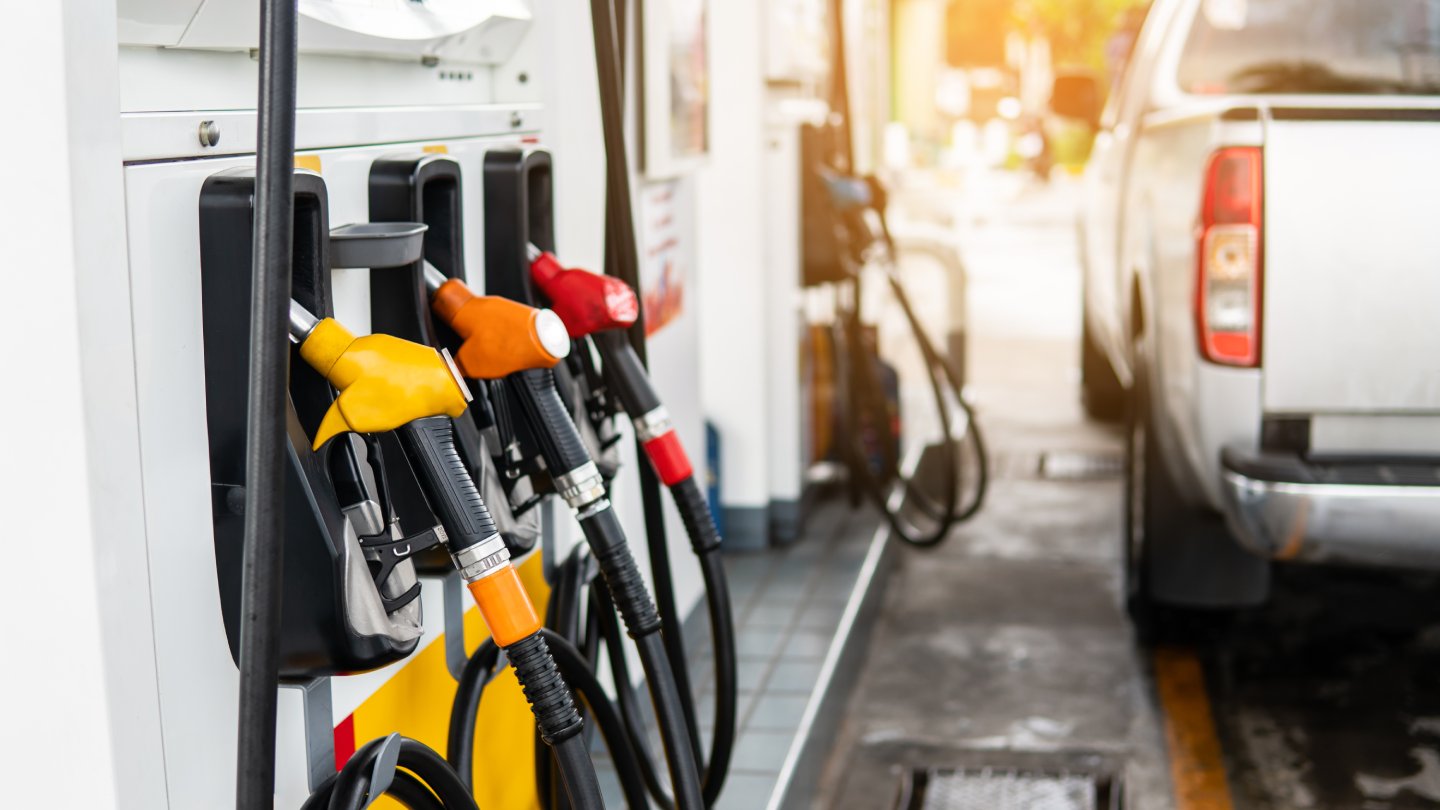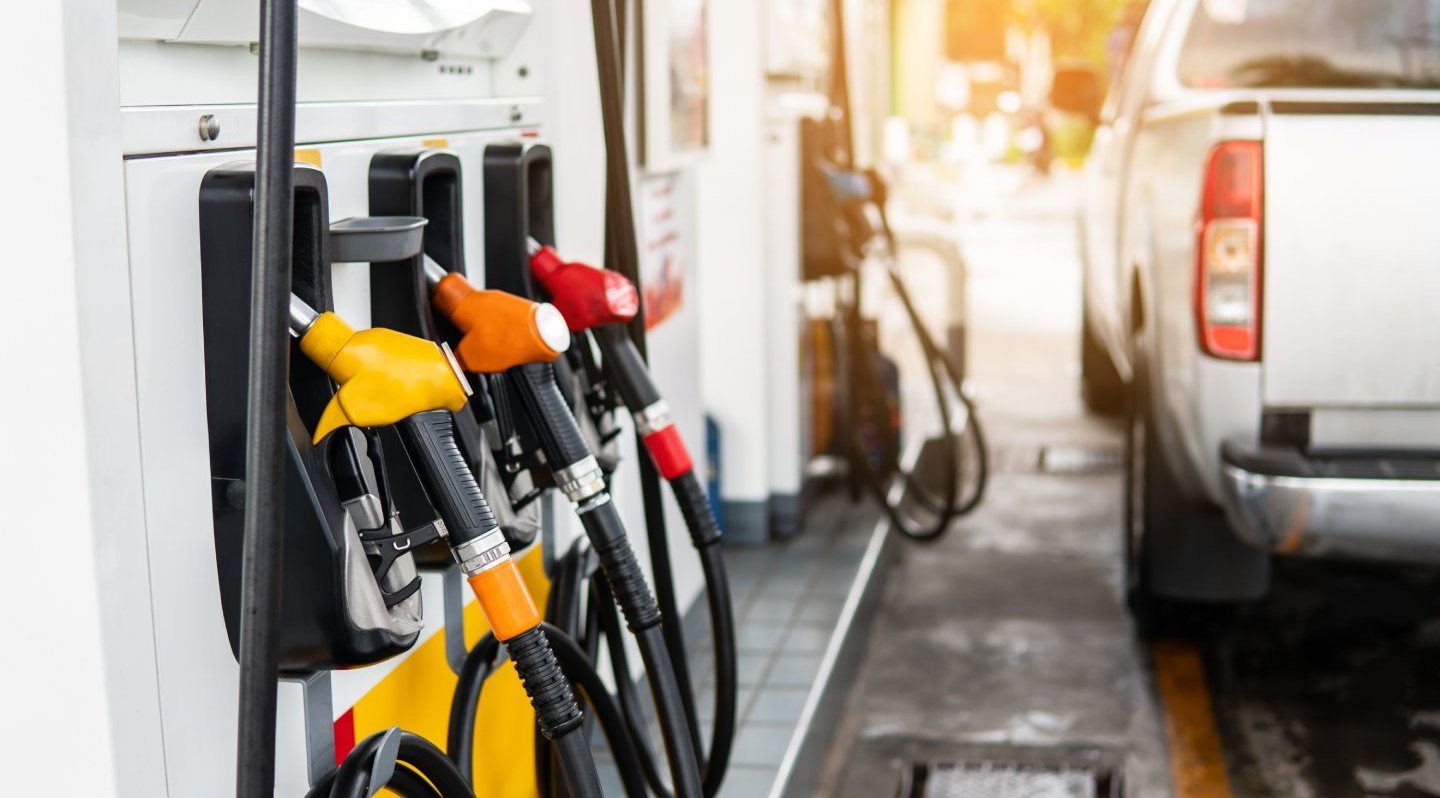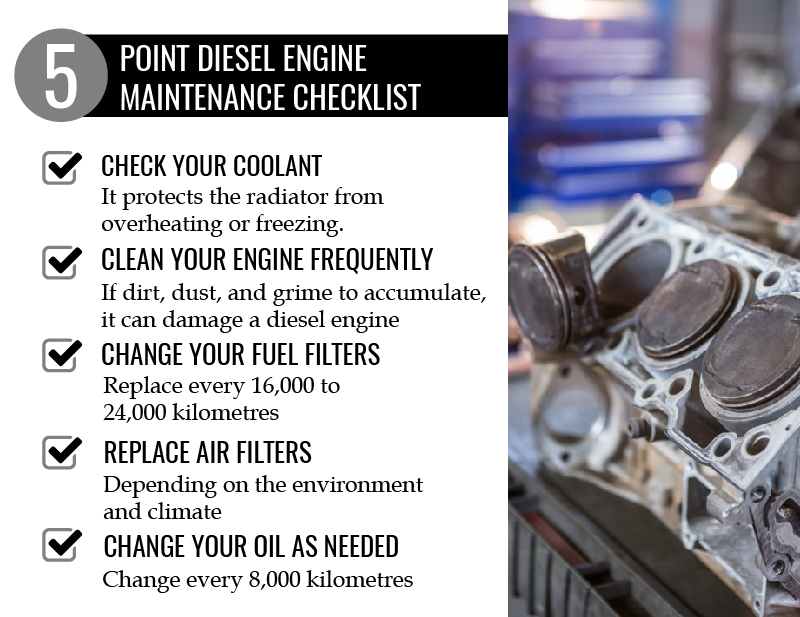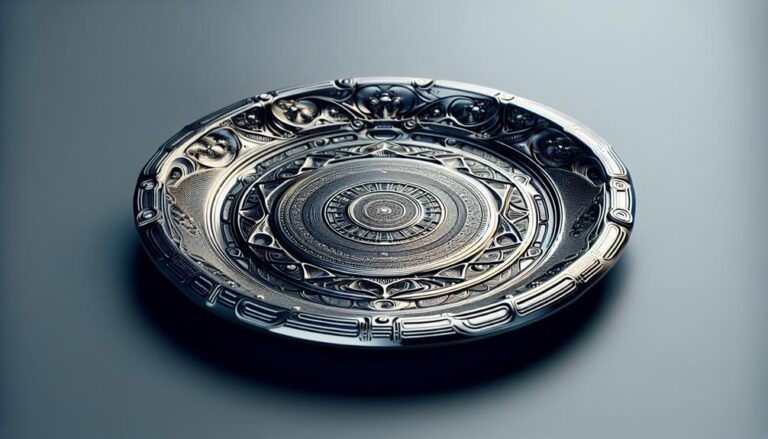How to Maintain a Diesel Engine
To maintain a diesel engine, regular oil changes and fuel filter replacements are crucial. Follow manufacturer’s maintenance schedule.
Proper maintenance prolongs engine life and ensures optimal performance, saving money in the long run. Neglecting maintenance can result in costly repairs and reduced fuel efficiency. By taking care of your diesel engine, you can avoid unexpected breakdowns and keep your vehicle running smoothly.
Regularly checking the coolant level, inspecting hoses and belts, and monitoring for any unusual sounds or vibrations are essential tasks in diesel engine maintenance. A well-maintained diesel engine not only improves performance but also reduces emissions, contributing to environmental protection. Regular maintenance is the key to maximizing the longevity and efficiency of your diesel engine.
Regular Maintenance
Regular maintenance is essential for keeping a diesel engine in optimal condition, ensuring it runs efficiently, and prolonging its lifespan. By following a routine maintenance schedule, you can prevent major issues and costly repairs. Here are the key aspects of regular maintenance for a diesel engine:
Checking And Changing The Oil
Regular oil checks and changes are vital for the smooth operation of a diesel engine. Using the manufacturer’s recommended oil, check the oil level frequently and change it at regular intervals, typically every 5,000 to 7,500 miles. Ensure the oil is clean and at the correct level to prevent engine wear and damage.
Inspecting And Replacing The Air Filter
The air filter plays a crucial role in maintaining fuel efficiency and reducing engine wear. Regularly inspect the air filter for dirt and debris, and replace it if it’s clogged or dirty. A clean air filter ensures the engine receives an adequate amount of clean air, enhancing performance and fuel economy.
Monitoring And Replacing Fuel Filters
Fuel filters safeguard the engine by trapping contaminants and preventing them from entering the fuel system. Monitor the fuel filters for clogs or dirt build-up, and replace them as recommended by the manufacturer. By ensuring clean fuel filters, you can prevent fuel system issues and maintain the engine’s performance.

Credit: gomotive.com
Cooling System Maintenance
Regular maintenance is crucial for optimizing the performance of a diesel engine’s cooling system. By regularly inspecting and cleaning the radiator, checking coolant levels and quality, and ensuring proper fan operation, you can keep your cooling system running smoothly, preventing costly repairs and minimizing downtime.
Checking The Coolant Level
Regularly check the coolant level to prevent overheating issues.
Flushing And Replacing Coolant
Flush and replace the coolant as per the manufacturer’s recommendations.
Inspecting And Replacing The Thermostat
Periodically inspect and replace the thermostat for optimal cooling system functionality.
Exhaust System Maintenance
Proper maintenance of a diesel engine’s exhaust system is crucial for optimal performance. Regular inspection and cleaning of the exhaust system components, including the muffler and DPF, can prevent costly repairs and ensure efficient engine operation. It is also essential to address any issues promptly to avoid potential damage to the engine.
Exhaust System Maintenance Maintaining the exhaust system of a diesel engine is crucial for optimal performance. Efficient exhaust system ensures emission compliance and engine longevity. Regular inspection and cleaning is vital for exhaust system maintenance. Inspecting and Cleaning the Exhaust System Regular inspection ensures early detection of potential issues. Remove debris and buildup for proper exhaust flow. Cleaning reduces the risk of exhaust system damage. Use appropriate tools for thorough cleaning. Inspect for leaks and signs of wear. Replacing the Exhaust Gas Recirculation Valve Over time, the EGR valve may become clogged or faulty. Replacement prevents engine performance issues. Ensure the replacement valve meets manufacturer specifications. Professional installation may be needed. Regularly check for valve functionality. Checking and Replacing the Diesel Particulate Filter Monitor DPF for clogging and proper regeneration. Regularly check the filter for contamination and damage. Replace the DPF if necessary to maintain emissions compliance. Use only OEM or recommended filters. Follow manufacturer guidelines for replacements. By following these maintenance practices, you can ensure the exhaust system of your diesel engine functions optimally. Regular inspection and timely replacements are key to engine efficiency and compliance.
Credit: gomotive.com
Battery And Electrical System Maintenance
Proper maintenance of the battery and electrical system is crucial to ensuring the smooth operation of a diesel engine. Neglecting these components can lead to issues such as starting difficulties and poor performance. To avoid such problems, regular inspection and maintenance of the battery, alternator, and spark plugs are essential.
Inspecting And Cleaning The Battery Terminals
Regularly inspecting and cleaning the battery terminals is essential for optimal performance. Over time, corrosion can build up on the terminals, leading to poor electrical connections. Use a mixture of baking soda and water to gently clean the terminals with a wire brush, ensuring a secure and clean connection.
Checking And Replacing The Alternator
The alternator plays a vital role in charging the battery and providing power to the electrical system. Regular checking of the alternator for any signs of wear or damage is necessary. If any issues are detected, promptly replacing the alternator can prevent further damage to the battery and other electrical components.
Testing And Replacing Spark Plugs
Testing and replacing the spark plugs at recommended intervals is crucial for maintaining optimal engine performance. Faulty spark plugs can result in poor ignition, leading to decreased fuel efficiency and power output. Regular testing and replacement of spark plugs can help prevent such issues.
Performance Optimization
To optimize performance, proper maintenance of a diesel engine is crucial. Regularly check and replace filters, monitor oil levels, and ensure spark plugs are functioning efficiently. Following manufacturer’s guidelines for service intervals can significantly enhance engine lifespan and overall performance.
Using High-quality Diesel Fuel
One of the most important factors in optimizing the performance of your diesel engine is using high-quality diesel fuel. High-quality fuel not only ensures the smooth running of your engine but also helps to extend its lifespan. To ensure that you are using the best fuel, purchase it from reputable suppliers who adhere to strict quality control standards. Avoid buying fuel from unreliable sources or those that offer significantly lower prices, as it may not meet the necessary standards.
High-quality diesel fuel, which is low in impurities, helps to prevent clogging of the fuel injectors and filters. It also reduces the risk of fuel system corrosion and maintains proper lubrication within the engine. This leads to improved fuel efficiency, reduced emissions, and overall better engine performance.
Regularly Cleaning And Lubricating Moving Parts
To optimize the performance of your diesel engine, it is crucial to regularly clean and lubricate all the moving parts. This includes components such as the fuel injectors, pistons, valves, and turbocharger. Dust, dirt, and other contaminants can accumulate over time and adversely affect the engine’s performance.
Regular cleaning helps to remove these impurities and keep the moving parts in good condition. Use appropriate cleaning products recommended by the manufacturer and follow the guidelines for their application. Additionally, ensure that you lubricate the moving parts with high-quality lubricants as specified in the engine manual. This helps reduce friction, heat, and wear on the engine, resulting in increased performance and longevity.
Performing Engine Tune-ups
Regular engine tune-ups are essential for maintaining optimal performance and preventing potential issues. During a tune-up, various components of the engine are inspected, adjusted, and replaced if necessary. This includes checking the spark plugs, air filters, fuel filters, and timing belt. Additionally, the fuel injection system may require calibration or cleaning to ensure optimal fuel delivery.
Tune-ups should be undertaken as per the manufacturer’s recommendations, which can typically be found in the engine manual. It’s important to follow these guidelines diligently to keep your diesel engine performing at its best. By addressing any potential issues promptly and keeping all components in top condition, you can maximize engine efficiency, power, and overall performance.

Credit: autosmartmechanical.com.au
Frequently Asked Questions On How To Maintain A Diesel Engine
Are Diesel Engines Easy To Maintain?
Yes, diesel engines are easy to maintain due to their simple design and robust construction. Regular maintenance, such as oil changes and filter replacements, keeps them running smoothly for years.
What Not To Do With A Diesel Engine?
Avoid idling excessively, neglecting maintenance, using incorrect fuel, ignoring warning lights, and overloading the engine.
How Do You Prolong The Life Of A Diesel Engine?
To prolong the life of a diesel engine, you should regularly change the oil, maintain proper coolant levels, clean or replace air filters, use high-quality fuel, and follow the recommended maintenance schedule. Doing these things keeps your engine running smoothly and helps prevent costly repairs.
How Often Should A Diesel Engine Be Serviced?
A diesel engine should be serviced regularly to maintain its performance. It is recommended to service a diesel engine at least once a year or after every 10,000 to 15,000 miles, depending on the manufacturer’s guidelines. Regular servicing helps to prevent breakdowns, improve fuel efficiency, and prolong the engine’s lifespan.
What Are The Benefits Of Maintaining A Diesel Engine?
Maintaining a diesel engine ensures improved fuel efficiency, extended engine life, and reduced emissions.
How Often Should A Diesel Engine Be Serviced?
Regular servicing is crucial for a diesel engine, and it’s recommended to service it every 6,000 to 10,000 miles or as per the manufacturer’s guidelines.
What Are The Common Maintenance Tasks For A Diesel Engine?
Common maintenance tasks for a diesel engine include changing the oil regularly, inspecting and cleaning the air filters, and checking and replacing the fuel filters.
Conclusion
Maintaining a diesel engine is crucial for its performance and longevity. By following the recommended maintenance schedule and using high-quality fuel and lubricants, you can ensure that your diesel engine operates at its best. Regular inspections and prompt repairs are also essential for preventing costly breakdowns.
By taking these steps, you can keep your diesel engine running smoothly for years to come.

